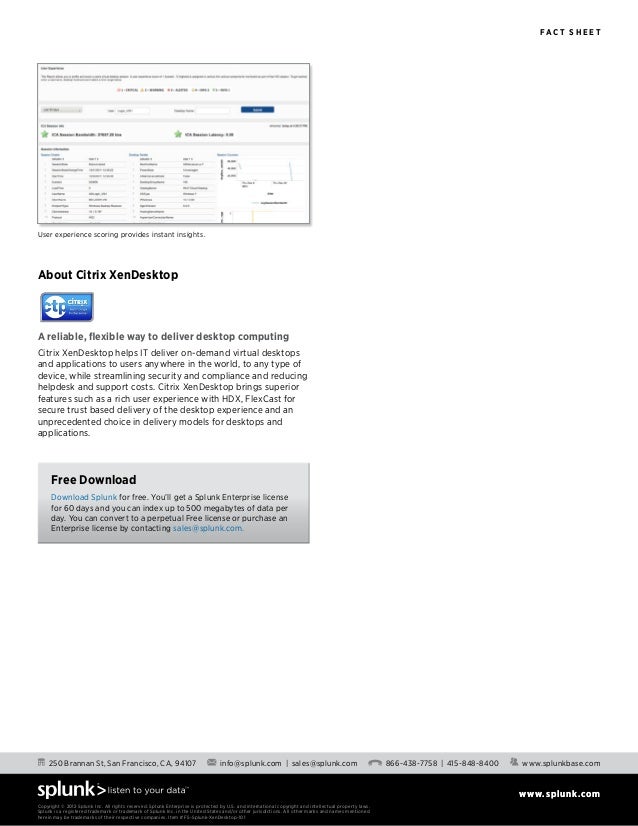
- #DESKTOP SPLUNK FORWARDER INSTALL#
- #DESKTOP SPLUNK FORWARDER MANUAL#
- #DESKTOP SPLUNK FORWARDER PROFESSIONAL#
- #DESKTOP SPLUNK FORWARDER DOWNLOAD#
#DESKTOP SPLUNK FORWARDER MANUAL#
Please see the Configure the Universal Forwarder in the Splunk Forwarder Manual for more information on configuring the Splunk Universal Forwarder. After the container is in a "healthy" state, run the following: docker exec -it /bin/bash are now logged into the container as the splunk user.


Instead, you can access the container directly by using the docker exec command. The Splunk Universal Forwarder however does not have a GUI, so you will not be able to access it through a web interface. The Splunk Universal Forwarder is started in a similar way to Splunk Enterprise $ docker run -d -p 9997:9997 -e 'SPLUNK_START_ARGS=-accept-license' -e 'SPLUNK_PASSWORD='store/splunk/universalforwarder:7.3 $ docker pull store/splunk/universalforwarder:7.3 Starting Splunk Universal Forwarder Docker container
#DESKTOP SPLUNK FORWARDER INSTALL#
Install Splunk Universal Forwarder Docker containerĭownload the required image to your local Docker image library. Failure to do so will render your deployment in an "unsupported" state.
#DESKTOP SPLUNK FORWARDER PROFESSIONAL#
For all other configurations, please contact Splunk Professional Services. Note: Splunk Support only provides support for the single instance Splunk Validated Architectures (S-Type), Universal Forwarders and Heavy Forwarders. Please consult the Docker or Kubernetes documentation regarding best practices for building services. Splunk Support will only provide assistance with the functionality of running the container on the systems listed above, and cannot support setup and configuration of the a service level object to be used for docker-compose or kubectl. ** Note: ** Splunk Support does not provide assistance with the advanced usage of an operator such as the scale command.

Docker Community Engine 17.06.2 or later.Docker Enterprise Engine 17.06.2 or later.In the event you fall into an unsupported state, you may find support on Splunk Answers, or through the open source communities found on GitHub for Splunk-Ansible or GitHub for Splunk-Docker. You are using features not officially supported by Splunk.You are running Splunk Enterprise / Splunk Universal Forwarder in a container on a platform not officially supported by Splunk.You do not have an active support contract.In the following conditions, Splunk Support reserves the right to deem your installation in an unsupported state and not provide assistance when issues arise: Throughout this document, the term "Supported" means you can contact Splunk Support for assistance with issues. Please check back periodically as our support matrix will expand over time. Below is a list of supported platforms and base operating systems. Because not all settings apply to all customers, Splunk will only support the most common subset of all configurations.

Splunk Enterprise contains many settings that allow customers to tailor their Splunk environment. Splunk officially supported installation platforms Restart the Splunk Universal Forwarder service for the changes to take effect.įor more information about editing the nf file, please see. In the event that you use an alternate log location, the event log name and source name should be BeyondTrust Privilege Management. Run the following command to install the package.
#DESKTOP SPLUNK FORWARDER DOWNLOAD#
This example collects Privilege Management events from that endpoint or the Windows Event Forwarder node: Install Splunk Universal Forwarder Download the Splunk Forwarder package for Linux. In a default installation of the Splunk Universal Forwarder, the file is stored in this path:Ĭ:\Program Files\SplunkUniversalForwarder\etc\system\localĭepending on your user access, you might need to change the permissions on the file to apply changes. To configure the type of events, you need to edit the nf file. After you install the Splunk Universal Forwarder, you can configure the types of events to send to Splunk Enterprise.


 0 kommentar(er)
0 kommentar(er)
